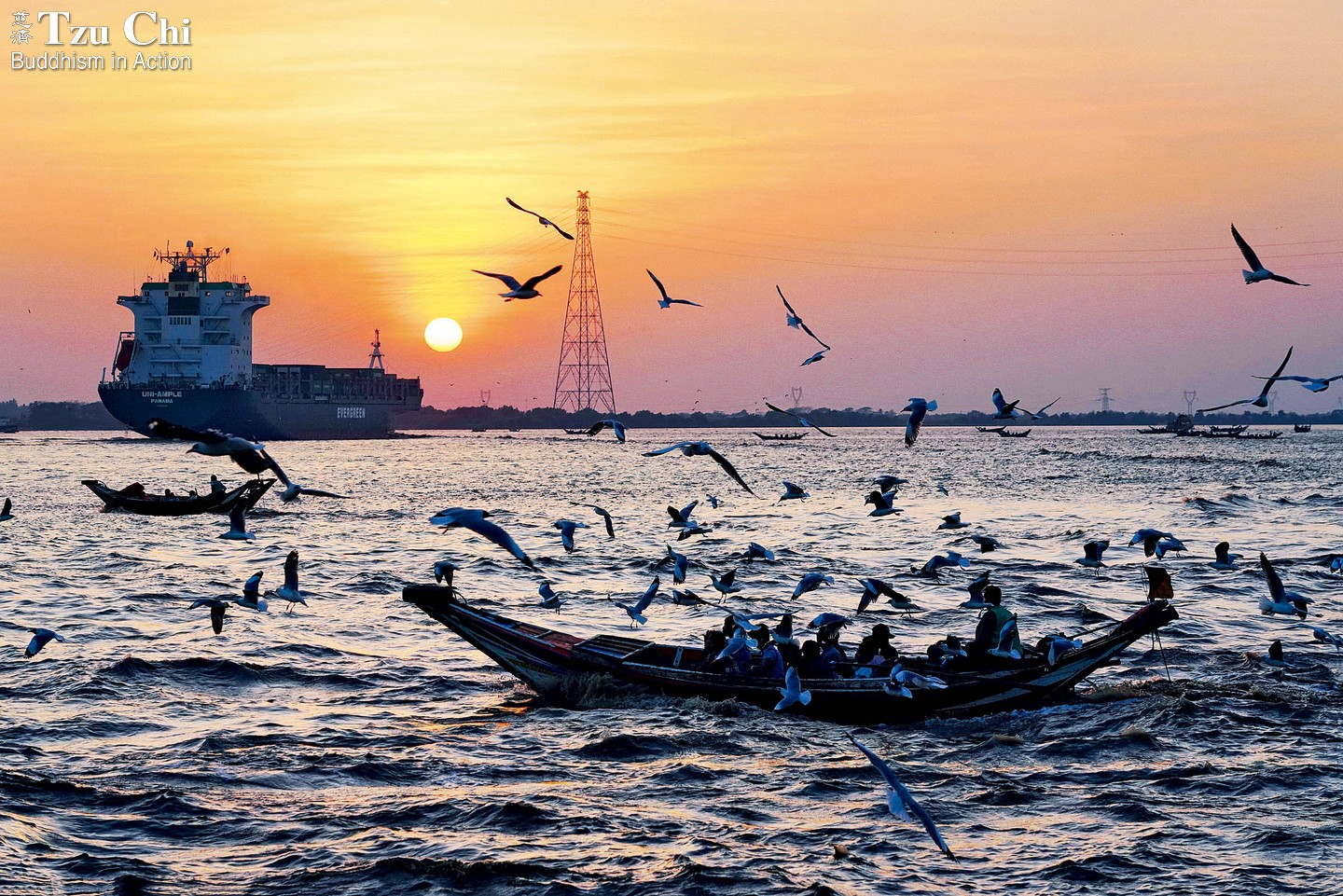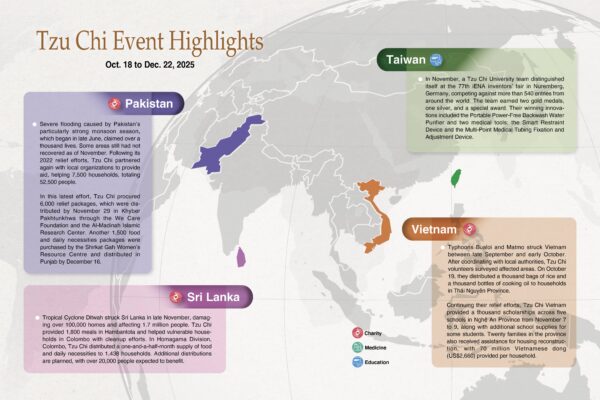Translated by Teresa Chang
On the morning of August 14, a magnitude 7.2 earthquake jolted Haiti, killing over 2,000 and injuring more than 12,000. On the heels of the deadly quake, a tropical storm hit the island. My heart ached thinking of the people there without proper shelter to protect them from the wind and rain. Compounding the impact of the disasters is poverty, which is widespread in Haiti. We have some volunteers there working to help local needy people, and volunteers from the U.S. regularly visit to provide assistance and support too, but poor public security makes it difficult to render aid.
Despite breakthroughs in technology, the best earthquake alert systems only provide a few seconds’ worth of warning before the shaking starts—and a few seconds doesn’t allow people to flee to safety. Before they realize what is happening, the earthquake is upon them. Life is so impermanent; it’s hard to predict what will happen next. We must be grateful for each day, even each second, that passes in peace and safety. When we consciously cultivate an attitude of gratitude, our capacity to feel joy and well-being will grow.
Our world is still very much in the grips of the COVID-19 pandemic. People continue to live with a heightened sense of fear and uncertainty. After one and a half years, has humanity awakened to the lesson this pandemic is teaching us? Our unbridled desires, such as those for meat, are causing a backlash. To satisfy their craving for meat, people have devoured countless animals. Estimates have shown that it takes 38 chickens or a single pig to make 500 boxed meals, but our world now has eight billion people. How many animals must be slaughtered to provide just one meal for all those eating meat? The killing required creates an immense amount of bad karma. With that, how is it possible for the world to enjoy peace and be free from disasters?
Animals carry viruses and bacteria, so we can also prevent disease from entering our bodies by avoiding meat. Many medical experts have studied vegetarianism since the pandemic started raging and found that a balanced plant-based diet is good for our health; it offers only benefits and no harm. Mother Nature provides enough grains, vegetables, and fruit to sustain and nourish us. There is no reason to cause lives to be lost just to feed ourselves.
When I founded Tzu Chi over 50 years ago, I committed myself to working for all living beings. I wanted to save all living beings—not just humans—from suffering. Abstaining from meat shows our love for all living creatures with whom we share this planet. A vegetarian diet helps our love become more complete.
The Buddha taught us to be compassionate, to refrain from killing, and to love and protect all lives. Science supports the wisdom of his teachings too. It is clear the Enlightened One was pointing a right path for us to follow, and yet many people still find it hard to become vegetarian. They just can’t tame their craving for meat. In fact, at least 80 billion animals are currently being raised to meet the need for meat consumption globally. Just imagine the sheer amount of water and food needed to raise such a large number of animals—not to mention the impact on the environment of all the carbon dioxide emitted in processes connected with providing meat for consumption.
Today’s advanced technology has made receiving and spreading information easy. There is no better time to use such means to spread compassion and nourish wisdom. But what is wisdom? Doing good for the world is wisdom. Some people might be clever but lack wisdom. As a result, they might try to get whatever they want, no matter the cost. They might commit foolish deeds that damage the environment, pollute the air, and that harm or kill living beings, thus contributing to the world’s collective bad karma.
Let’s all work to tame our desires, rid ourselves of inner impurities, and do things that benefit the world. Vegetarianism is a good way for us to show our love for the world. To nurture a kind heart, we must start by doing no harm to other people, to animals, or to this world. We humans are the most intelligent of all animals. We have the power to relieve suffering and provide a safe haven for everything else. Let’s all eat vegetarian and encourage others to do the same. Together, we can create a cleaner Earth, help people have better health, and nurture kindness in everyone’s heart.

A vegetarian diet helps us nurture a kind heart. It’s also good for the environment and contributes to the well-being of the world as a whole. Hsiao Yiu-hwa



